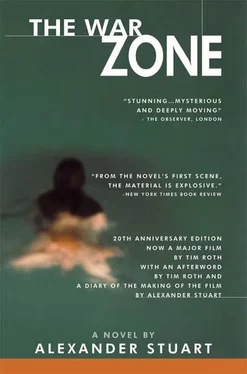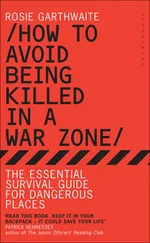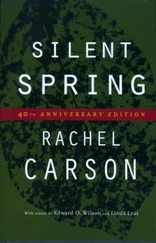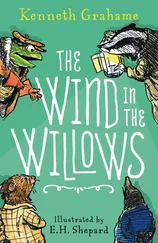Nothing is set yet, but I think Tim’s feeling is that we’ll probably go with Channel Four, because they seem to guarantee the greatest artistic freedom.
One of Tim’s conditions for doing this film has been that we avoid American finance, because even independent companies like Miramax tend to get heavily involved in shaping the script or, failing that, reshaping the film through editing (Miramax chief Harvey Weinstein’s nickname in the industry is ‘Harvey Scissorhands’).
•
Saturday April 6,1996
I flew from Miami to LA yesterday to start working with Tim on outlining the new script.
We meet at 11:00 this morning at Tim’s agent, Ilene Feldman’s offices on Sunset Boulevard, a wonderful place to work. It’s quiet, there’s no one about, the offices are decorated in a very relaxed, noncorporate style using mostly dark-wood furniture from Asia, and Ilene’s office has a fine view over Los Angeles.
Tim doesn’t want to see any of the scripts of The War Zone that I wrote for Danny Boyle, Nic Roeg or Barbara Broccoli – perhaps eight or nine drafts in all. He wants to start afresh from the novel, and his first advice to me is to go away and read my own book!
It’s funny; no one has ever suggested this before. Obviously, I’ve read it many times, from proofreading the various editions to working on the previous scripts, but Tim wants me to read everything, not just the parts I think have useful plot points or dialogue. With this in mind, he’s had a friend scan his lone paperback copy of the novel, blow it up to script format and make copies for both of us.
We ease into working together, with an hour or so before lunch, then take a break and a couple of beers, then back to it for the rest of the afternoon. I take notes, but have a cassette recorder running as insurance in case I miss anything. One of the first things we talk about is changing the season in the film from summer to winter.
Summer was always really important to me in the novel – the idea of a really hot, unusual, primal English summer, with Devon almost as a jungle: nature gone crazy. But because of the unpredictability of British summers, we’ve twice lost the chance to shoot the film with Danny Boyle, and moreover I’ve just seen the film Fargo and I love the idea of a totally fresh start on the script with a far bleaker natural backdrop.
This seems to fit absolutely with Tim’s thinking – he is already talking very precisely about how he’d like to shoot the film, using a widescreen format and powerful Turneresque landscapes. Later, he takes me to Book Soup on Sunset Boulevard, to leaf through art books, trying to find the exact mood he wants.
Another major discussion is of Dad’s profession. In the book, he’s an architect and this provides a target for some of Tom’s resentment toward him, but Tim wants the family to be closer to his own roots, more working-class, so we decide that Dad might instead work in architectural salvage, ripping valuable old pieces out of other people’s homes – and ripping them off in the process.
To some extent, this feels like another loss of authorship for me, since I have always wanted the family to be middle-class because the cliché of abuse is of a working-class family, whereas it happens in every class: just as much in the houses of the well-off as in a council house. But it’s important to Tim, and I feel that he, more than anyone, has to be comfortable with the milieu of the film.
We discuss structuring the film so that it’s essentially through Tom’s eyes, as in the book, so that we share not only Jessie’s pain, but Tom’s discovery of and exclusion from the abuse that will tear his family apart.
We talk about the possibility of using voice-over – the novel is very internal, and it’s hard to capture the complexity of Tom’s situation without being inside his head. We both feel that voice-over can work spectacularly well in films such as Badlands or Goodfellas , but we’re not sure if we want it yet.
Every time I have doubts about where I might go with a particular moment, Tim tells me, ‘ Go back to the novel. Look at what’s there, use that. ’
I appreciate the fact that he trusts me: that I’m not interested simply in recreating the novel on screen, but rather in trying to get to the essence of it and translate it to a different medium. He obviously doesn’t feel that by encouraging me to go back to the book, I’ll wind up being too literary, the way some novelists are when they adapt their own material. Personally, I think my biggest liability when I adapt my own material is that I tend to want to throw everything out – even the parts that made it work in the first place – and start again.
Another encouraging aspect of working with Tim is that because of his position in the industry – and his confidence – he has established that I will work solely with him on the script. No one else will see it until both of us are happy with it, and then, if anyone has any issues, they will have to deal first with Tim, not me.
I have known the producers, Sarah Radclyffe, Dixie Linder and Eric Abraham, for several years, and I like working with them, but it’s liberating to be answerable to one person – and one person who is very clear in what he wants – rather than going through notes from four or five different points of view.
•
Friday April 12, 1996
A great week working with Tim at his house in the hills above the reservoir in Silverlake, east of Hollywood. I meet his wife, Nikki, who’s incredibly nice, and their wonderful eighteen-month-old son, Hunter. Nikki takes a photograph of me with Tim in front of the Mr Orange poster from Reservoir Dogs in his office, a picture I have to this day on the bookshelves in my office.
I also have a meeting with Katy Coyle at Showtime about Among the Thugs , which is looking good – they want me to go to New York to meet Bill Buford, who wrote the book, and start outlining the script. I think the fact that my novel, Tribes , deals with the same subject, soccer violence, is a plus.
Tim says he enjoys working with me, that it’s easy. We’ve been talking about how The War Zone should play on looks and gestures as much as dialogue – on the emotions and small moments that run through every family – especially in the early scenes, where we want the audience to like and feel as comfortable as possible with our characters.
Tim wants me to look at old silent-movie scripts to see how they were written, so I call around and find a very helpful librarian at the Script Library of the University of Southern California.
This morning I drive to the USC campus in downtown LA – a strange juxtaposition of old, neoclassical elegance and surrounding urban decay.
The script library is impressive, if not a little daunting: it makes me aware of just how much of this town was built on the movie business. The silent scripts the librarian has found for me are great – he’s even tried to find some dealing with incest, but couldn’t, because the library mostly has collections from what became the major studios, and a script about incest in the 1910s or 1920s would have been made by a smaller, more radical company.
The scripts themselves are originals, sometimes carbon copies, on ancient, fragile, almost translucent typing paper. I am told to leave my bag behind and sit in a room, with a young graduate student on duty as an observer/guardian.
The librarian, in addition to providing a selection of early short screenplays, has found a number of books from the 1910s dealing with writing for silent cinema. But it is the quality of writing in the scripts themselves that impresses me – all the emotion had to be on screen, rather than in the dialogue, for which there were only silent title cards – so even the action passages were more lyrical than in the screenplays of today, where description is usually kept to a minimum.
Читать дальше












